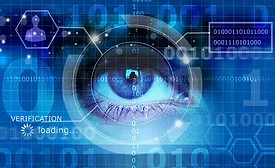Home » biometrics
Articles Tagged with ''biometrics''
Beyond Passwords: How Security Can Improve Identity in 2018
In 2018, enterprises will increasingly look to a future beyond passwords.
March 15, 2018
Sign-up to receive top management & result-driven techniques in the industry.
Join over 20,000+ industry leaders who receive our premium content.
SIGN UP TODAY!Copyright ©2026. All Rights Reserved BNP Media.
Design, CMS, Hosting & Web Development :: ePublishing


